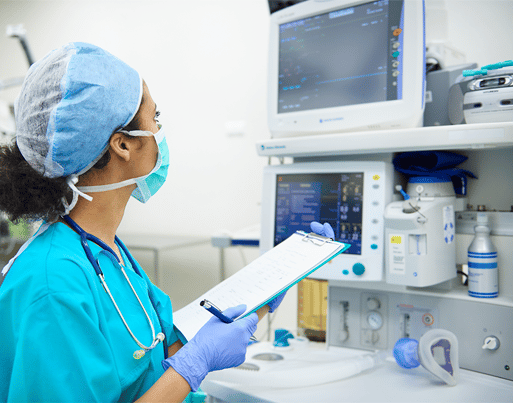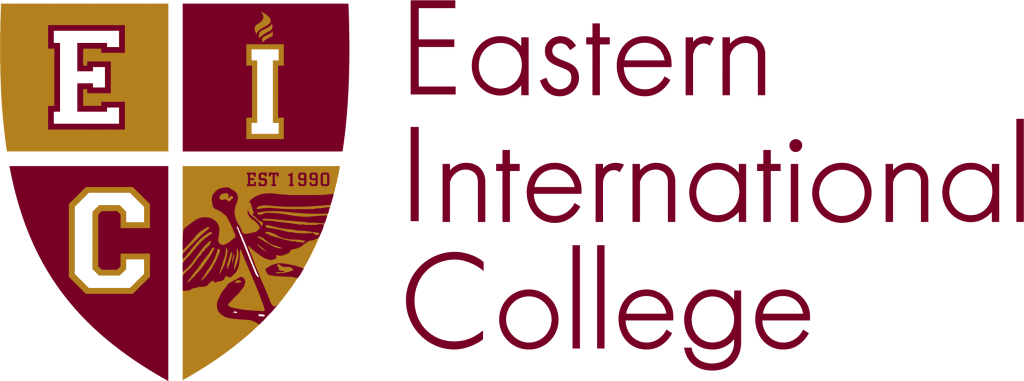Nursing, AAS
Home / Programs / Associates / Nursing, AAS
Program Description
The Nursing Associate Degree program prepares students to work as entry-level nurses in doctors’ offices, acute care and rehabilitation settings, long term care facilities, ambulatory and community centers, medical centers and hospitals, among others. The applied science portion of the program has two major components: the theory/didactic/lab component and the clinical externship component. The general education portion of the program includes coursework in Anatomy and Physiology, English, math, developmental psychology, microbiology, and nutrition. Emphasis in this portion of the program is placed on enhancing students’ academic and interpersonal skills.
The Associate Degree in Nursing (ADN) program in Belleville, NJ and Jersey City, NJ are approved by the New Jersey Board of Nursing. The ADN program in the Belleville campus is programmatically accredited by the Accreditation Commission for Education in Nursing (ACEN). Since the ADN programs are approved by the New Jersey Board of Nursing, graduates are eligible to apply for state licensure and sit for the National Council Licensure Examination for Registered Nurses (NCLEX-RN). However, since state licensure requirements are not controlled by the College and are subject to change without notice, Eastern International College cannot guarantee that graduates will be eligible for licensure in New Jersey, at all or at any specific time, regardless of their eligibility status upon enrollment. https://www.njconsumeraffairs.gov/nur
The program has a total of 70 semester credits, with 24 credits in general education and 46 credits in program major course work. The curriculum outline is shown below.
- NCLEX-RN passing rates: 62% in 2021: 71% in 2022; 86.9 % YTD in 2023
- Student Retention Rates: 75% in 2020; 50% in 2021; 66% in 2022

program learning outcomes
- Utilize the nursing process, critical thinking, and principles of advocacy as tools to make culturally-sensitive client-centered clinical decisions in all health care settings
- Collaborate with clients and other members of the health care team using effective communication in the planning, coordination and provision of competent care.
- Integrate the concepts of Orem’s Self Care Deficit Theory into nursing practice.
- Promote client and staff safety utilizing the process of quality improvement based on evidence- based practice.
- Use information and technology for communication, knowledge development, professional development and clinical-decision making.
- Demonstrate leadership behaviors and professionalism when providing care to clients across the lifespan in all care settings.
- Integrate legal, ethical, and professional standards into nursing practice.
Thus, program graduates are prepared to assume nursing roles in a variety of settings within the health care delivery system and to provide nursing care collaboratively with other health care professionals.
General Education Coursework
| Course Number | Course Title | Semester Credits |
| BIO 101 | Anatomy & Physiology I | 4 |
| BIO 102 | Anatomy & Physiology II | 4 |
| ENG 101 | English Composition I | 3 |
| ENG 102 | English Composition II | 3 |
| MAT 103 | College Math | 3 |
| MIC 101 | Microbiology | 4 |
| PSY 102 | Developmental Psychology | 3 |
| Total | 24 |
Total Program Credits = 70 semester credits
Length of Program: 24 months
program major courses
| Course Number | Course Title | Semester Credits |
| NUR 101 | Introduction to Nursing | 3 |
| NUR 102 | Fundamentals of Nursing | 6 |
| NUR 103 | Health Assessment | 2 |
| NUR 104 | Pharmacology I | 3 |
| NUR 105 | Pharmacology II | 2 |
| NUR 201 | Adult Health I | 6 |
| NUR 202 | Adult Health II | 6 |
| NUR 203 | Psychiatric-Mental Health Nursing | 3 |
| NUR 204 | Obstetrical Nursing | 3 |
| NUR 205 | Pediatric Nursing | 3 |
| NUR 206 | Concept Synthesis Capstone | 3 |
| NUR 207 | Senior Clinical Practicum | 6 |
| Total | 46 |
Total Program Credits = 70 semester credits
Length of Program: 24 months
ADMISSIONS
Applicants to all programs must follow program-specific criteria listed below. Each applicant will be interviewed and given a tour of the College by his/her assigned admissions representative. Information gathered during this meeting will be presented to the Campus Director for review. If said review results in a positive recommendation, the applicant is encouraged to proceed with the appropriate application process.
- Minimum high school Diploma or recognized equivalency certificate (GED)
- Take the HESI Exam with a minimum score of 75
- Complete Admissions Process
Take a tour of our Jersey City and Belleville campuses, or contact us to learn more about our available allied health academic programs.

